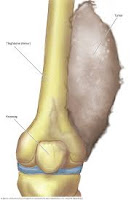Leukemia is cancer of the blood cells(blood cancer). In leukemia, the bone marrow starts to make a lot of abnormal white blood cells (leukemia cells).
These abnormal cells out number the healthy cells gradually leading to anaemia, bleeding and infection. The exact cause of leukaemia is unknown but risk factors have been identified. leukaemia is grouped into how quickly the disease spreads (acute or chronic) and which blood cells are affected ((lymphocytes or myelocytes).
TYPES OF LEUKAEMIA
Chronic myelogenous leukemia (CML).
It mainly affect adults. It affects the myleoid
cells and usually grow slowly at first. It has little or no symptoms in the initial stages. It is usually diagnosed in the chronic stage (disease developing slowly, or of long duration ) when treatment is very effective for most people.
cells and usually grow slowly at first. It has little or no symptoms in the initial stages. It is usually diagnosed in the chronic stage (disease developing slowly, or of long duration ) when treatment is very effective for most people.
Chronic lymphocytic leukemia (CLL)
This kind almost never affects children. It is found in people over 55 years. It affects the lymphoid cells and grows slowly. It is the most common chronic adult form of leukemia. You may feel well for years and not need any treatment.
Acute lymphocytic leukemia (ALL)
Most common types of leukemia in children even though adults may get it. It affects lymphoid cells and grows very quickly
Acute myelogenous leukemia (AML)
It is the most common type of acute leukemia in adults. It affects children too. It grows rapidly and affects the myleoid cells.
Blood Cancer, Blood Cancer, Blood Cancer, Blood Cancer, Blood Cancer, Blood Cancer, Blood Cancer, Blood Cancer, Blood Cancer, Blood Cancer, Blood Cancer, Blood Cancer, Blood Cancer, Blood Cancer, Blood Cancer, Blood Cancer, Blood Cancer, Blood Cancer, Blood Cancer, Blood Cancer, Blood Cancer, Blood Cancer, Blood Cancer, Blood Cancer, Blood Cancer, Blood Cancer, Blood Cancer, Blood Cancer, Blood Cancer, Blood Cancer, Blood Cancer, Blood Cancer, Blood Cancer, Blood Cancer, Blood Cancer, Blood Cancer, Blood Cancer, Blood Cancer, Blood Cancer, Blood Cancer, Blood Cancer, Blood Cancer, Blood Cancer, Blood Cancer, Blood Cancer, Blood Cancer, Blood Cancer, Blood Cancer, Blood Cancer, Blood Cancer, Blood Cancer, Blood Cancer, Blood Cancer, Blood Cancer, Blood Cancer, Blood Cancer, Blood Cancer, Blood Cancer, Blood Cancer, Blood Cancer, Blood Cancer, Blood Cancer, Blood Cancer, Blood Cancer, Blood Cancer, Blood Cancer, Blood Cancer, Blood Cancer, Blood Cancer, Blood Cancer, Blood Cancer, Blood Cancer, Blood Cancer, Blood Cancer, Blood Cancer, Blood Cancer, Blood Cancer, Blood Cancer, Blood Cancer, Blood Cancer, Blood Cancer, Blood Cancer, Blood Cancer, Blood Cancer, Blood Cancer,
Blood Cancer, Blood Cancer, Blood Cancer, Blood Cancer, Blood Cancer, Blood Cancer, Blood Cancer, Blood Cancer, Blood Cancer, Blood Cancer, Blood Cancer, Blood Cancer, Blood Cancer, Blood Cancer, Blood Cancer, Blood Cancer, Blood Cancer, Blood Cancer, Blood Cancer, Blood Cancer, Blood Cancer, Blood Cancer, Blood Cancer, Blood Cancer, Blood Cancer, Blood Cancer, Blood Cancer, Blood Cancer, Blood Cancer, Blood Cancer, Blood Cancer, Blood Cancer, Blood Cancer, Blood Cancer, Blood Cancer, Blood Cancer, Blood Cancer, Blood Cancer, Blood Cancer, Blood Cancer, Blood Cancer, Blood Cancer, Blood Cancer, Blood Cancer, Blood Cancer, Blood Cancer, Blood Cancer, Blood Cancer, Blood Cancer, Blood Cancer, Blood Cancer, Blood Cancer, Blood Cancer, Blood Cancer, Blood Cancer, Blood Cancer, Blood Cancer, Blood Cancer, Blood Cancer, Blood Cancer, Blood Cancer, Blood Cancer, Blood Cancer, Blood Cancer, Blood Cancer, Blood Cancer, Blood Cancer, Blood Cancer, Blood Cancer, Blood Cancer, Blood Cancer, Blood Cancer, Blood Cancer, Blood Cancer, Blood Cancer, Blood Cancer, Blood Cancer, Blood Cancer, Blood Cancer, Blood Cancer, Blood Cancer, Blood Cancer, Blood Cancer, Blood Cancer, Blood Cancer,











